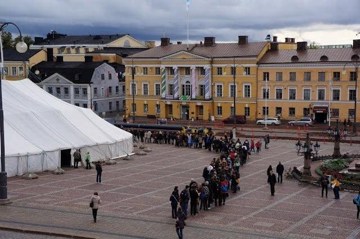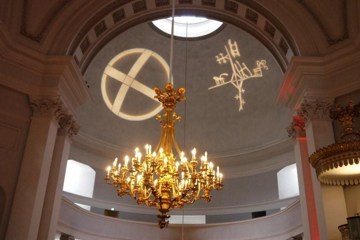28-30 September 2012
What is a “Nordic Taizé meeting”? It really is something that is quite hard to describe!
There is no theme or slogan written up above the door: only ’tervetuloa’, ’välkommen’, ’Bures boahtin’, ’Hau kola’, ’welcome’.
Is praying with songs and silence really enough to bring people together?
One of the brothers has described Taizé meetings as ’controlled natural disasters’, which at first seems pretty extreme, but on closer investigation it is perhaps not so far from the truth.
Natural disasters, like storms, floods or forest fires, force us out of our everyday life patterns. We have to jump out of the rutted tracks of our normal routines.
Face challenges, which like the natural forces of water or fire are too great to be tackled alone. We have to work together.
Perhaps this is particularly true in Nordic regions where everything is pre-planned 18 months in advance, and perfectionism (never fully attained) is the rule.
When ’controlled natural disasters’ occur, like the recent Taizé meeting in Helsinki, two things happen.
Firstly there is a ’rush’ of generosity; homes are opened to accommodate the homeless pilgrims, and the normal barriers of race, religion, and language are cast aside.
Secondly, fearless volunteers appear (apparently from nowhere), ready to take on any job which needs to be done with, great joy, however lowly or complex the job might be.
Barriers are down; meetings which normally would not happen take place.
In the Bible God often speaks to people experiencing extreme conditions; it is clear that God is not the initiator of these ’disasters’, but somehow allows us to listen to his voice, like a whisper, or gentle breeze. In the same way, the silence was so profound at the heart of the prayer, because of all the activities surrounding it.
___
Note:
’tervetuloa’ is Finnish
’välkommen : Swedish (2nd official language of Finland)
’Bures boahtin’, Northern Sami (the most spoken of the Sami languges)
’Hau kola’, is Lakota (a group of Oglalal Lakota Indians from South Dakota took part in the meeting)
All mean : ’welcome’.
 TAIZÉ
TAIZÉ
